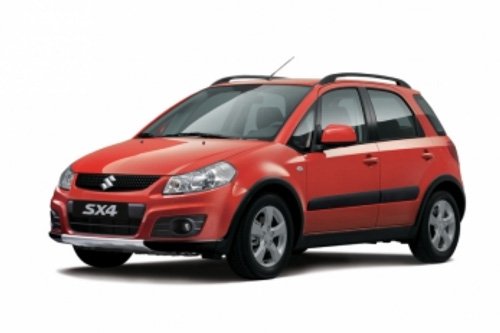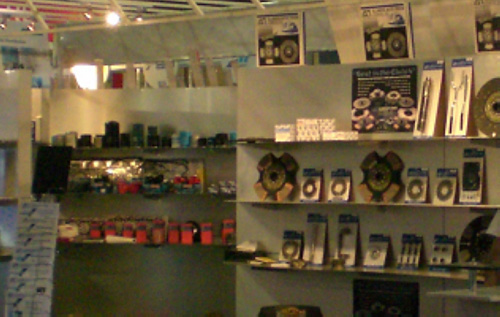Hungarian Auto Market Attracts Surge in Foreign Investment
2011/08/26 | By Michelle Hsu
According to data from the European Union (EU), Hungary is the eighth largest auto and auto parts market in Europe, worth around 8.9 billion euros in 2010. It also was once the fastest-growing auto market in Europe prior to the 2008 global financial crisis, with annual sales up 13% on average between 2003 and 2007. In addition, Hungary is also a major auto parts producer in Europe, with an annual production of around 7.2 billion euros.
Since early 1990, Hungary has seen increasing investments by international automakers. The automobile industry there has since become a major engine of economic growth in Hungary, accounting for around 25% of the country's industrial output and 20% of its exports.
The thriving auto industry has attracted major international automakers to expand operations in Hungary. Among them, Mercedes-Benz set up two production lines there this year.
Market Performance
Like most of other countries, Hungary's auto market was seriously hit by the global financial crisis, which slashed the country's auto sales from 153,000 units in 2008 to only 60,200 units in 2009. By 2010, sales had gradually recovered to 98,000 units. It was reported that over 300 of Hungary's 1,200 car dealerships went bankrupt over the two years following the crisis, and another 300-400 are at risk of going bust.
In the second half of 2010 the Hungarian auto market started to show signs of recovery. The Datahouse, an industrial research institution, saw a minor upturn on the Hungarian new car market following the sharp declines caused by the 2008 global financial crisis. In April of this year, new car sales were up by a total of 3,690 units, a slight 0.8% growth from one year earlier.
Small car assembly and auto parts production are the major forces of Hungary's auto industry, which serves both the domestic market and neighboring countries. Currently, there are around 600 auto parts makers in Hungary, around 75% of which are operated by foreign automakers as their OEM satellite plants. Currently, the OEM auto parts market is worth around 8 billion euros in the country, while the aftermarket contributes about 1.1 billion euros.
Though smaller, the aftermarket has strong growth potential given the soaring sales of used car sales in Hungary. Major international auto parts makers, such as like Bosch, Knorr Bremse, Philips, Luk, Magna Steyr, Tata, ZF, Delphi, Asahi, and Lear, all have set up sales network in Hungary.
Aftermarket
The Hungarian market for used cars, according to the Hungarian media, is showing signs of revival as the number of cars "re-registered" started to grow marginally in the last five months of 2010. The overall trend turned positive this year when 104,396 used cars were re-registered by new owners, compared to 98,156 in the same period in 2010.
Rising sales of used cars is expected to spur growth in demand for aftermarket parts, which are mainly used for auto repair and maintenance. Due to the small scale of aftermarket auto parts production in the country, a good portion of the auto parts sold on Hungary's aftermarket is imported. The top three imported items are brake pads (95 million euros in 2010), exhaust pipes (83 million euros in 2010), and batteries (43 million euros), whereas the filters, shock absorbers, and exhaust pipes have been the three fastest-growing import items over the past few years.
Since hundreds of small shops have shut down under the impact of the 2008 global financial crisis, Hungary's aftermarket is now dominated by large chain stores and wholesale houses that together control 80% of the market and therefore are the main channels for imports into the country.
Heavy Reliance on Imports
Without sufficient auto parts production to support its fast-growing auto sector, Hungary heavily relies on imports of auto parts. Statistics showed that Hungary's auto part imports grew by an average of 12% annually between 2003 and 2008, much higher than the average 5.8% level of the EU countries.
In terms of auto parts imports, Hungary is the 12th largest market in Europe. Auto part imports there grew strongly until the global financial crisis in 2008, when imports slipped in line with falling auto sales.
Most of the auto part imports come from EU countries, which account for 88% of the import bill. Hungary's annual auto parts imports from the EU have risen by 5% on average over the past five years, mostly from Germany (56%), Poland (5.9%), and Czech (5.6%). Imports from Romania grew the fastest, followed by Czech and Poland.
The top three auto parts import items are engine and engine parts (3.2 billion euros in 2010), transmission systems (982 million euros in 2010), and car bodies (899 million euros in 2010).
Increasingly, though, Hungary is looking further afield to developing countries to source auto parts at far lower prices. Hungary's annual auto parts import from developing countries grew by 25% on average over the past five years, compared to an average 16% growth for imports from EU countries.
Those auto parts shipped from the developing countries, however, takes a mere market share of 4.5% in Hungary, and may have a great potential to grow in the future. Major auto parts suppliers of the developing countries are India (24%), Bosnia and Herzegovina (15%), Ukraine (14%), China (13%), and Brazil (8.4%).
Dominance by Foreign Brands
Hungary's auto market traditionally has been dominated by small cars of foreign brands such as Japanese Suzuki, American Ford, German Volkswagen and Opel.

Suzuki Magyar recently celebrated its 20th anniversary. The company, which was founded back in April 1991, has steadily grown and now plays a major role in Hungary's automotive market. The company's facilities at Esztergom comprise five shop units (stamping, welding, painting, assembly and bumper). Last year, the plant produced a total of 170,000 vehicles. All models currently made there have Euro 5 compliant engines.




